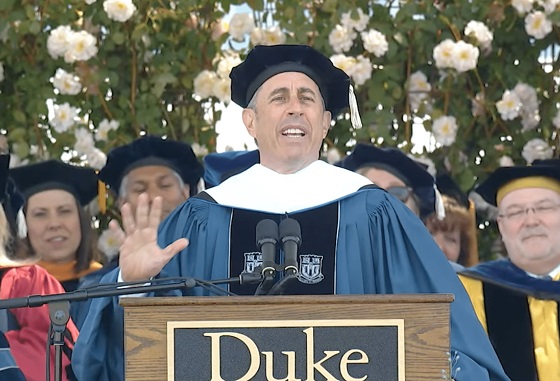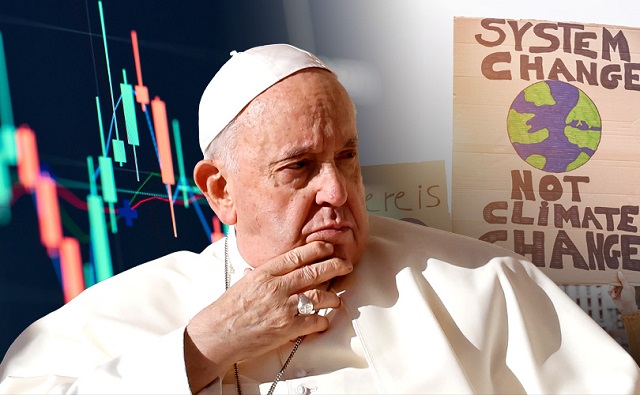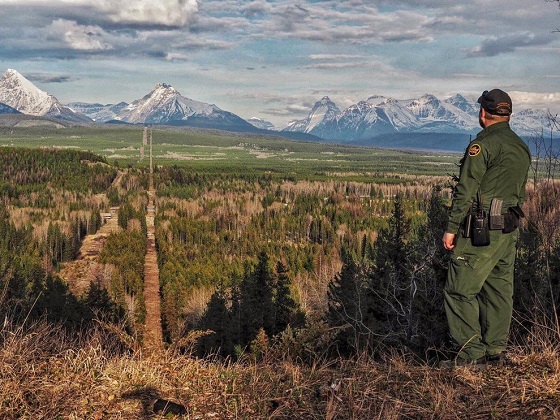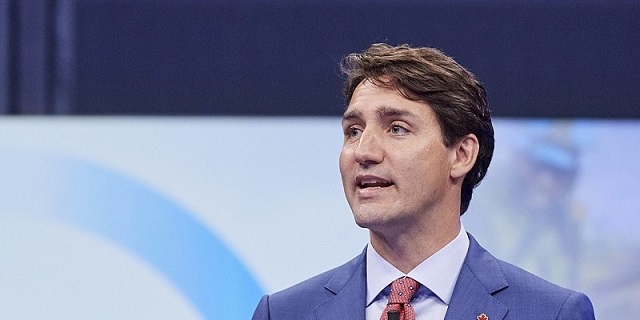Uncategorized
UK leader May hits back on Brexit plan; pound falls

LONDON — British Prime Minister Theresa May accused the European Union on Friday of creating an “impasse” in divorce negotiations by bluntly rejecting her blueprint for Brexit, sending the value of the pound falling as worries about a chaotic U.K. exit from the EU soared.
With British newspapers declaring that May had been “humiliated” by EU leaders, the prime minister used a televised statement from 10 Downing St. to insist she was prepared to take Britain out of the bloc without a deal if it did not treat the country with more respect.
Declaring that “we are at an impasse,” May said the EU must lay out “what the real issues are and what their alternative is.”
“Throughout this process, I have treated the EU with nothing but respect,” she said. “The U.K. expects the same. A good relationship at the end of this process depends on it.”
The pound fell 1.5
May’s strong words belied her weak position: She is a prime minister without a parliamentary majority, caught between the EU and a pro-Brexit wing of her Conservative Party that threatens to oust her if she makes a compromise too far.
May’s combative remarks were calibrated to appease euroskeptic Conservatives ahead of what’s likely to be a bruising annual party conference at the end of the month.
May’s statement followed a fraught EU summit in Salzburg, Austria, which dashed hopes of a breakthrough in stalled divorce talks with only six months to go until Britain leaves the bloc on March 29.
European Council President Donald Tusk said at the meeting that parts of the U.K.’s plan simply “will not work.” French President Emmanuel Macron called pro-Brexit U.K. politicians “liars” who had misled the country about the costs of leaving the 28-nation bloc.
The judgment of British newspapers was brutal. The broadly pro-EU Guardian said May had been “humiliated.” The conservative Times of London said: “Humiliation for May as EU rejects Brexit plan.”
The Brexit-supporting tabloid Sun branded bloc leaders “EU dirty rats,” accusing “Euro mobsters” Tusk and Macron of “ambushing” May.
UK Brexit Secretary Dominic Raab said the bloc had “yanked up the handbrake” on the negotiations.
But despite all the heated British rhetoric, the EU’s position was not new.
May’s “Chequers plan” — named for the prime minister’s country retreat where it was hammered out in July — aims to keep the U.K. in the EU single market for goods but not services, in order to ensure free trade with the bloc and an open border between the U.K.’s Northern Ireland and EU member Ireland.
EU officials have been cool on the plan from the start, saying Britain can’t “cherry-pick” elements of membership in the bloc without accepting all the costs and responsibilities.
Yet British politicians and diplomats were taken aback by Tusk’s blunt dismissal of the Chequers plan on Thursday — and by his light-hearted Instagram post showing Tusk and May looking at a dessert tray and the words: “A piece of cake, perhaps? Sorry, no cherries.”
In a statement Friday, Tusk said the bloc’s position had “been known to the British side in every detail for many weeks.” He said EU leaders regarded Chequers as “a step in the right direction” but had been taken aback by May’s “uncompromising” stance in Salzburg.
Tusk said in Salzburg that an EU summit on Oct. 18-19 would be the moment of truth, when an agreement on divorce terms and the outlines of future trade would be sealed or would fail.
The biggest single obstacle to a deal is the need to maintain an open Irish border. Failing to do so could disrupt the lives of people and business on both sides, and undermine Northern Ireland’s hard-won peace.
Britain and the EU have agreed on the need for a legally binding backstop to guarantee there is no return to customs posts and other border checks. But Britain rejects the EU’s proposed solution, which would keep Northern Ireland inside the bloc’s customs union while the rest of the U.K. leaves.
May said Friday the EU was “making a fundamental mistake” if it believed she would agree to “any form of customs border between Northern Ireland and the rest of the U.K.”
May said she wanted to reassure people in Northern Ireland “that in the event of no deal, we will do everything in our power to prevent a return to a hard border.”
She also said more than 3 million EU citizens living in the U.K. would retain their rights even if Britain left the bloc without an agreement.
“You are our friends, our
Dealing with the EU is only part of May’s problem. Pro-Brexit Conservatives, including former Foreign Secretary Boris Johnson, hate the Chequers plan, saying it would keep Britain tethered to the bloc, unable to strike new trade deals around the world.
Conservative lawmaker Jacob Rees-Mogg, an arch-Brexiteer, praised May for “standing up to the EU bullies,” but urged her to ditch the Chequers plan for a much looser “Canada-style” free trade agreement.”
Pro-EU politicians don’t like the Chequers plan either, saying it will cut the U.K.’s vast services sector out of the EU’s single market. Many are pushing for a new referendum that would let voters choose between accepting whatever deal she manages to negotiate with the bloc and staying in the EU.
Labour Party Brexit spokesman Keir Starmer said May was “in denial.”
“I don’t understand why she’s failed to hear the message that the Chequers proposal wasn’t going to be accepted by the EU and frankly it’s not going to be accepted by her own party,” he said.
Despite the
“I remain convinced that a compromise, good for all, is still possible,” Tusk said. “I say these words as a close friend of the U.K. and a true admirer of PM May.”
May said a solution required “serious engagement on resolving the two big problems in the negotiations” — trade and the Irish border.
“We stand ready,” she said.
___
Associated Press writers Danica Kirka and Carlo Piovano contributed.
Jill Lawless, The Associated Press
Uncategorized
RCMP recruitment failure has Alberta advocacy group calling for Provincial Police Service

News release from Free Alberta Strategy (A Strong And Sovereign Alberta Within Canada)
“Make no mistake, we are paying for these services that we aren’t receiving. Alberta’s taxpayers are paying tens of millions of dollars for nearly 400 vacant RCMP officer positions – for boots that are not on the ground.”
A recent report from the Royal Canadian Mounted Police (RCMP)’s independent Management Advisory Board had findings that are nothing short of alarming:
“Federal policing has now arrived at a critical juncture of its sustainability, which present risks for the national security and safety of Canada, its people, and its interests,” says the report.
After over a year of diligent study, the Board has been tirelessly firing off flares, signalling to all who will listen: the very foundation of our national public safety apparatus may be at risk of faltering.
This is doubly problematic because, as you well know, the RCMP is also responsible for boots-on-the-ground policing in large parts of the country, including many rural and remote areas – including in Alberta.
Rural crime has been a longstanding issue in Alberta, and social disorder continues to make headlines nightly.
Alberta Minister of Public Safety, Mike Ellis, took to social media platform X (formerly known as Twitter) to express his opinion:
“The independent report finds the RCMP has struggled in recent years to recruit and retain regular members, a problem that’s particularly acute in federal policing. This is not about the hard-working men and women on the frontline: they are doing everything they can. The reality is the RCMP do not have enough officers to police communities in Canada effectively.”
Ellis has been ahead of this story for months now.
In March, Ellis stated that:
“… on average, Alberta has an RCMP officer vacancy rate of 20 per cent. This means that Alberta is only being served by 1,522 of the 1,911 RCMP officers that the federal government has authorized for Alberta.”
“Make no mistake, we are paying for these services that we aren’t receiving. Alberta’s taxpayers are paying tens of millions of dollars for nearly 400 vacant RCMP officer positions – for boots that are not on the ground.”
The consequences of this capacity crisis are far-reaching.
Not only does it jeopardize the safety of Albertans, but it also undermines the credibility of Canada’s federal police force on the international stage.
With limited resources and personnel, the RCMP’s ability to address pressing national and global security concerns is severely compromised.
The Management Advisory Board, created in 2019 by the federal government to provide external advice to the RCMP commissioner, set up a task force in the fall of 2022 to study the federal policing program.
Overall, the report says budget and personnel shortfalls have left the RCMP “operationally limited,” restricting the number of cases it can take on annually.
Here are some more highlights from the report:
“Canada and its people have already begun to see the repercussions of the federal policing program being stretched thin.”
“Federal policing’s overall eroding capacity may have implications for the credibility of Canada’s federal police force and its investigations on the international stage.”
“Ultimately, this may influence Canada’s overall approach and standing in international politics, including its ability to advance global priorities.”
Clearly, we cannot afford to wait any longer.
Municipalities can ease the burden on our national security services by establishing municipal policing.
Several cities in Alberta already have their own police authorities, and the provincial government is providing funding for others interested in exploring this option.
Grande Prairie is already in the process of establishing their own municipal police service.
No word on how many other municipalities have taken the government up on their offer.
Unfortunately, President of Alberta Municipalities Tyler Gandam (also Mayor of Wetaskiwin) is featured prominently on the National Police Federation’s “Keep Alberta RCMP” website.
Interestingly, the Keep Alberta RCMP website doesn’t mention the fact that the advisory board even exists.
It doesn’t mention the report.
The notion that our federal policing infrastructure teeters on the brink of instability while Gandam appears to be asleep at the wheel, is deeply disconcerting.
The safety and security of Albertans must remain our top priority.
We cannot afford to wait any longer.
The time has come for the province to take swift and decisive measures to bolster policing capabilities in Alberta.
It’s time for Alberta to seriously consider the establishment of an Alberta Provincial Police Service.
It has been one of the core tenets of the Free Alberta Strategy.
If you agree, please reach out to your municipality and ask them to take steps to protect your community.
Together, we can keep Alberta safe.
Regards,
The Free Alberta Strategy Team
P.S. We’re hoping you’ll consider contributing to our cause. Your generous donation helps us make a positive impact in our community. No need to worry about any hold-ups or threats here. We’re just passionate about making a difference, and your support goes a long way in helping us achieve our goals.
Uncategorized
Making Alberta a geothermal energy leader

Eavor announces it’s the #1 geothermal energy startup company in the world – January 2024
Alberta is creating Canada’s first geothermal test site to advance drilling innovation, reduce emissions and create jobs.
Geothermal energy uses naturally occurring heat within the earth to heat water and buildings and generate power, with few emissions or environmental impacts. Alberta has vast pockets of heat below ground, making the province Canada’s geothermal leader, but testing and developing new technologies can be a barrier for many companies. Unlike the United States, Japan and other countries, Canada does not currently have an open-access test site to help spur innovation.
Alberta is taking the first steps to create a new Alberta Drilling Accelerator. This groundbreaking facility would be the first of its kind in Canada, establishing Alberta as a global hub for geothermal technology. This will drive new innovations in geothermal and other clean energy projects that can reduce emissions and power communities around the world.
To kick-start the project, the Alberta government is investing $750,000 to conduct a feasibility study led by Calgary-based Eavor Technologies and other stakeholders. The study is the first step in assessing the proposed facility. It will include identifying a site, business planning, research on the governance model, an economic impact analysis and stakeholder engagement that will lay the groundwork for the initial planning stages of the project.
“Alberta has been a global energy leader for more than a century, renowned for our skilled workforce, innovation and one of the largest oil and gas reserves on the planet. The proposed Alberta Drilling Accelerator presents enormous potential to help our province lead the next wave of energy projects here at home and around the world that reduce emissions, create jobs and enhance energy security.”
The Alberta Drilling Accelerator would help companies test out and develop new geothermal drilling techniques or technologies to reduce emissions and drive growth across the clean energy sector. It would be an open-access, technology-agnostic drilling test facility capable of drilling in challenging environments, including deep depths, high temperatures and different rock types.
The accelerator also would help speed up the development of carbon capture, utilization and storage; helium; critical minerals; and other clean technologies and commodities that rely on Alberta’s drilling sector. All of this helps attract investment and bring new technologies to scale in Canada.
“With cumulative geothermal investment poised to reach $1 trillion by 2050, a geothermal arms race is very much underway to commercialize novel drilling techniques that accelerate geothermal development – exhibited by testing facilities in the United States, China and Iceland. As Canada’s first geothermal test bed, the Alberta Drilling Accelerator will help bring geothermal technologies to scale, supporting companies like Eavor. We commend the Government of Alberta for this bold initiative.”
“We are proud to witness Eavor, a CDL-Rockies alumni company, create new opportunities for innovators like themselves to advance the adoption of energy transition technologies like geothermal. The Alberta Drilling Accelerator will further solidify Alberta’s position as a leader in the global sustainable energy landscape.”
If the feasibility study shows the facility is economically and environmentally viable, and if the project is approved by the Alberta government, the facility will start taking shape at the selected site and drilling could start as early as 2025.
“Canada is home to the most advanced drilling technology in the world. Not only do our members support the responsible development of oil and gas, but we are integral in the extraction of new energy resources like geothermal and critical minerals. Our workers are at the epicentre of Canada’s energy transformation. Our people, technology and processes are leading the way towards a more diverse energy future. The Alberta Drilling Accelerator is a government-enabled policy approach to expand Alberta’s drilling capacity and reach its full potential as the world’s most diverse and technologically advanced producer and exporter of sustainable energy and critical minerals.”
“The Alberta Drilling Accelerator is a testament to Alberta’s innovative and entrepreneurial spirit. Leveraging our oil and gas sector expertise, Alberta is poised to become the global leader in developing new geothermal technologies that will play an integral role in reducing emissions while supporting job creation.”
Quick facts
- The Canadian Association of Energy Contractors estimates that one active drilling rig, whether drilling for natural gas or geothermal, creates approximately 220 direct and indirect jobs and
$1 million in tax revenue. - In 2019, Eavor received $2 million in provincial funding through Emissions Reduction Alberta and Alberta Innovates for the world’s first closed-loop geothermal system.
Related information
-

 COVID-192 days ago
COVID-192 days agoCOVID Lab Leak: Over four later, EcoHealth Alliance funding is finally suspended
-

 COVID-191 day ago
COVID-191 day agoNIH Quietly Altered Definition For Gain-Of-Function Research On Its Website, Former Fauci Aide Confirms
-

 conflict2 days ago
conflict2 days agoWhite House Reportedly Worried About Russia’s Sudden Momentum Months After Biden Declared Putin ‘Already Lost’ War
-

 Business2 days ago
Business2 days agoESG Puppeteers
-

 Economy12 hours ago
Economy12 hours agoCanadians experiencing second-longest and third steepest decline in living standards in last 40 years
-

 Bruce Dowbiggin1 day ago
Bruce Dowbiggin1 day agoJerry Came to See The Babies. And They Walked Out On Him
-

 Energy1 day ago
Energy1 day agoPope Francis calls for ‘global financial charter’ at Vatican climate change conference
-

 Crime1 day ago
Crime1 day agoThe US Canadian border: Greatest number of terrorist watch list individuals being apprehended at northern border







